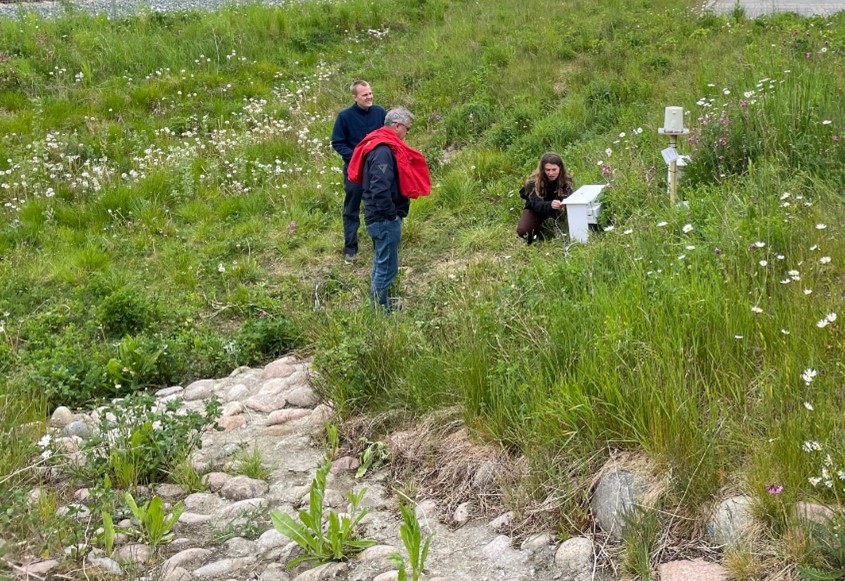The WATERUN project aims to develop an innovative methodology to contribute to the implementation of urban water runoff (UWR) management plans in cities based on the Water-Sensitive Urban Design (WSUD) concept.
The implementation and design of UWR management plans may appear as something done mainly at the local level. However, European authorities also pay close attention to this topic. Due to the recurring flood episodes across Europe, stormwater overflows and urban runoff remain a risk to the environment and human health.
A clear example of this attention at the European Union (EU) level is the European Commission (EC) proposal (from 26 October 2022) to recast the Urban Wastewater Directive (UWWTD).

Figure 1: Members of the WATERUN consortium checking samples in one of the pilot sites in Aarhus, Denmark.
The current UWWTD was adopted in 1991 and aims to protect the EU environment from the adverse effects of urban wastewater by setting out EU-wide rules for collecting, treating, and discharging wastewater. The proposal issued by the EC aims to address certain shortcomings and new societal needs, for instance, remaining sources of pollution (namely, stormwater overflows or urban runoff). The proposal is currently under review by the European Parliament and the Council of the EU, which have to approve the proposed text and may amend it following the ordinary legislative procedure.
Under the current drafting, the proposal (Article 5) will require Member States (MS) to establish integrated urban wastewater management plans to combat pollution from rain waters (urban runoff and stormwater overflow). All agglomerations ≥100 000 of population equivalent (p.e.) and between 10 000 p.e. and 100 000 p.e. (where stormwater overflow or urban runoff poses a risk to the environment or human health) will have to draw up management plans (by 2030 and 2035, respectively).
According to the proposal (Annex V), the management plans will have to include: a) an analysis of the initial situation of the drainage area; and b) objectives and measures for the reduction of pollution from stormwater overflows and urban runoff. Under the current draft, the objectives are set as indicative. However, they could change to mandatory/binding during the ongoing legislative procedure.
Authors: WAREG Secretariat, WAREG – European Water Regulators, secretariat@wareg.org (27/07/2023)